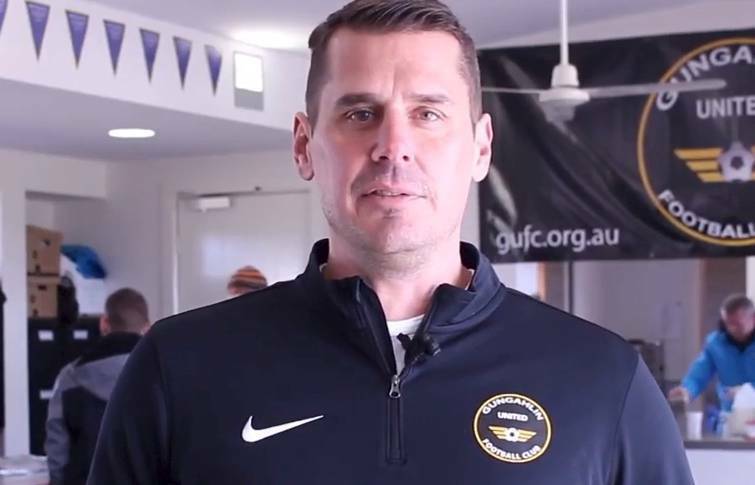
An ACT football club with "outstanding debts that were going to eat into their cash reserves" had its president allegedly swindle money for his personal benefit after convincing the club's leadership to switch banks, a court has heard.
Aaron David Alexander fronted the ACT Magistrates Court on Monday to contest charges related to him allegedly defrauding the Gungahlin United Football Club during his presidency in 2016-18.
The court heard he allegedly used the club's money to fund his lifestyle, which included entering a lease of a Land Rover Defender, going to the movies, buying chocolate at Max Brenner and purchasing other items unrelated to the club.
At the time, the club had about $40,000 in cash reserves and about $60,000 in debt owed to Capital Football and ACT Sportsgrounds.
Mr Alexander pleaded not guilty to 108 counts of obtaining property by deception and 108 counts of theft, with the latter being backup charges.
In his opening statement, prosecutor Marcus Dyason alleged that Mr Alexander obtained the club's money via a credit card, cash withdrawals and electronic transfers.
Mr Dyason said access to the club's money was for only "going towards the aims of the club as a whole" and that Mr Alexander's alleged offending breached his obligations under the club's constitution and financial management policy.
"At the heart of it, the prosecution says none of those transactions, regardless of any authorisation or not, were for the club's purpose," he said.

The court heard that shortly after being voted in as president, Mr Alexander allegedly convinced the executive committee to change banks from ANZ to National Australia Bank and to obtain credit cards for some of the committee's members.
Mr Alexander said NAB could sponsor the club because he knew the manager at one of the NAB branches in Canberra, the court heard.
"No such sponsorship did flow," Mr Dyason said.
Mr Dyason alleged that the defendant also took money he said was for the club's website development and that he repeatedly refused to give bank access to other executive committee members.
Defence lawyer Edward Chen did not make an opening statement.
Former club treasurer Debrah Hampson in her evidence in chief told the court that when Mr Alexander joined the club, his first order of business was proposing that the club changed banks because he would be able to obtain sponsorship from the new financial institution.
"The club did switch bank, but there was no sponsorship ever received," Ms Hampson said.
- 'Dumb': Man speeding to police station ends up in bike path pursuit
- Former public servant loses anonymity, jailed for sex crimes
- Anti-vax leader bailed after rifle, 124 rounds allegedly found in truck
In opening accounts with NAB, Ms Hampson said she understood that transactions and withdrawals of the club's money needed her and Mr Alexander's authorisation.
"That was not what happened. After three or four months in the position, I noticed that after Mr Alexander has joined [the club], there was a cash withdrawal of $3000," Ms Hampson alleged.
"That was a large sum and I had no knowledge and I hadn't co-signed on it."
She then held a discussion with the committee about two people authorising transactions in which Mr Alexander said he would "action it".
"It was my understanding it had been, but no, it hadn't," Ms Hampson said.
She said that shortly before her resignation in late 2017, she noticed another cash withdrawal of $1500.
"I had some concerns around the financial management of the club, around Mr Alexander's leadership," she said.
"I no longer felt comfortable to act as treasurer."
In relation to credit cards, Ms Hampson said she noticed unrelated purchases in statements involving Mr Alexander's credit card.
"There were transactions on the credit card I noticed for cinema, Max Brenner and a few other things that seemed outside the nature of the club's business.
"On those instances, I would contact Mr Alexander and ask him for the receipts ... and ask what those transactions were for."
Ms Hampson, an accountant, said she "wanted to pay it forward" in helping the club to address its poor financial position.
"In the first few months of being in there, I started to realise they had overcommitted with their funds. They had outstanding debts that were going to eat into their cash reserves," she said.
During cross examination, Ms Hampson was questioned about her memory of incidents, knowledge about club policies and governance and the banking procedures.
The hearing of the case, which had been postponed due to legal issues mid last year, before magistrate Glenn Theakston is expected to take one week.







